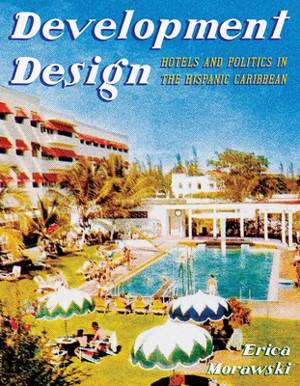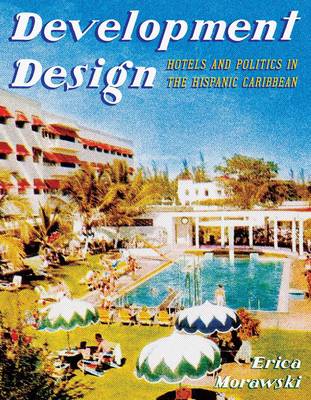
Bedankt voor het vertrouwen het afgelopen jaar! Om jou te bedanken bieden we GRATIS verzending (in België) aan op alles gedurende de hele maand januari.
- Afhalen na 1 uur in een winkel met voorraad
- In januari gratis thuislevering in België
- Ruim aanbod met 7 miljoen producten
Bedankt voor het vertrouwen het afgelopen jaar! Om jou te bedanken bieden we GRATIS verzending (in België) aan op alles gedurende de hele maand januari.
- Afhalen na 1 uur in een winkel met voorraad
- In januari gratis thuislevering in België
- Ruim aanbod met 7 miljoen producten
Zoeken
€ 203,95
+ 407 punten
Omschrijving
Underneath picturesque views of palm trees, fruity cocktails in hotel lounges, and day trips to preserved colonial zones lies a history of tourism design that intersects with larger projects of development and national and cultural identity formation. Locating modernity and coloniality as the key framework within which tourism development takes place, Development Design focuses on hotel design and its relation to larger urban and rural landscapes to uncover the way these seemingly carefree spaces are bound to local politics and international relations. Focusing on three sites in the Hispanic Caribbean--San Juan, Ciudad Trujillo, and Havana--Morawski traces different attitudes and approaches to tourism and its material design through five hotels that serve as case studies. Through examination of wicker chairs and lobby interiors, architecture and landscaping, public works and urban planning, Development Design illustrates the integral role hotel design played in negotiated and contested histories of development in Puerto Rico, the Dominican Republic, and Cuba.
Specificaties
Betrokkenen
- Auteur(s):
- Uitgeverij:
Inhoud
- Aantal bladzijden:
- 288
- Taal:
- Engels
- Reeks:
Eigenschappen
- Productcode (EAN):
- 9780822948605
- Verschijningsdatum:
- 4/11/2025
- Uitvoering:
- Hardcover
- Formaat:
- Genaaid
- Afmetingen:
- 178 mm x 229 mm
- Gewicht:
- 811 g

Alleen bij Standaard Boekhandel
+ 407 punten op je klantenkaart van Standaard Boekhandel
Beoordelingen
We publiceren alleen reviews die voldoen aan de voorwaarden voor reviews. Bekijk onze voorwaarden voor reviews.









